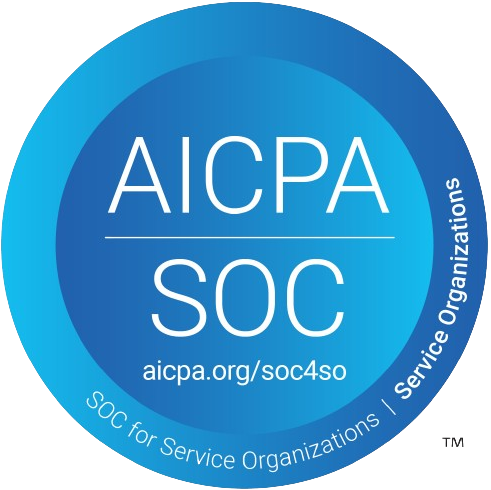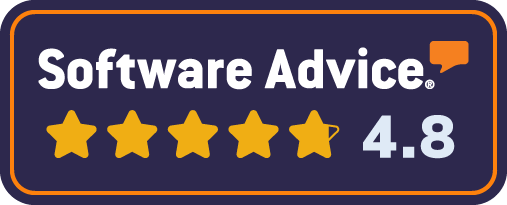The first multiple-choice test was given more than a hundred years ago. Are you still rocking the same vibes Frederick J. Kelly was putting out in 1914? If so, it might be time to level up your game.
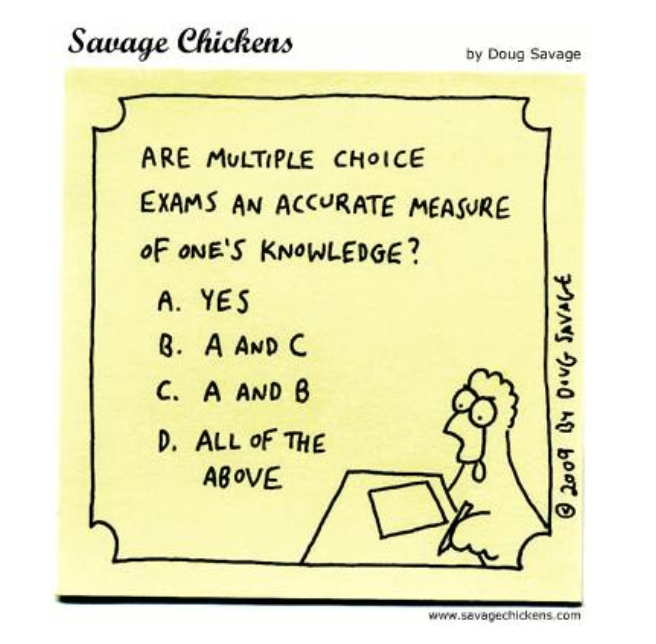
Multiple-choice quizzes are the path of least resistance: they are relatively easy and cheap to create and administer. But they’re also notoriously easy to game and are more effective measures of one’s ability to take a test than anything else. (They also fail to promote comprehensive understanding8 and increase opportunities for cheating1—and even guessing a random letter has a 25% chance of earning you a point.8
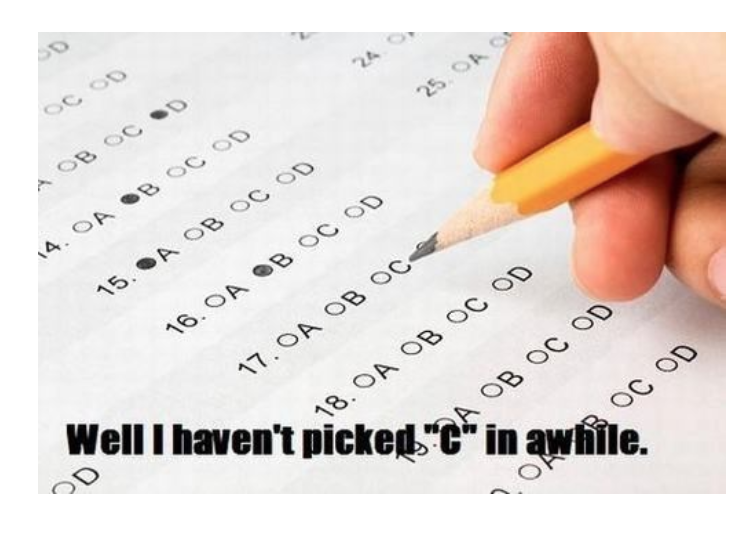
What are the alternatives to multiple-choice testing?
Another challenge of multiple-choice tests is that they are best suited to measuring lower-order skills like identification and recall; it’s harder to use them to measure higher-order skills2 like a person’s ability to apply, evaluate, or synthesize information. Luckily, we live in the 21st century so we can leverage the tools at our disposal to create much more robust and complicated measurements—we can conduct extensive and personalized oral examinations, we can take people through real-life scenarios and simulations, we can require long essays, and so much more, right?
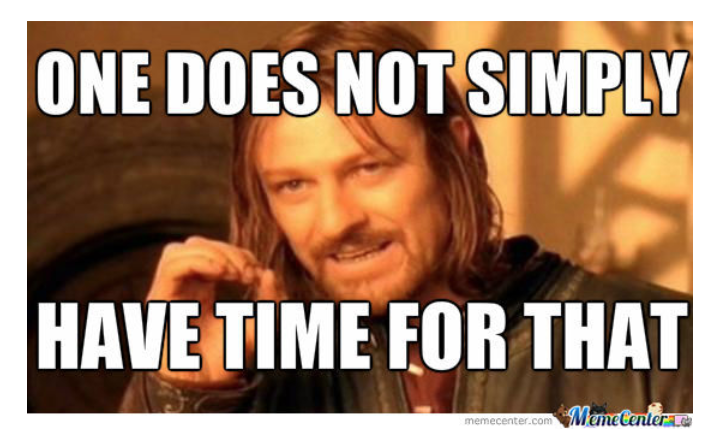
How about a solution I can actually implement?
We get it: unfortunately, the best assessments are the most complicated/difficult/expensive to create, deploy, and evaluate…which brings us back to Frederick J. Kelly and ol’reliable: the cheap, easy, multiple-choice question. Lucky for you, CredSpark has put a 21st century spin on the multiple-choice question, and we have a way for you to gain deeper insights on participant knowledge that doesn’t take any longer to score.
Check this out:
We get it: unfortunately, the best assessments are the most complicated/difficult/expensive to create, deploy, and evaluate…which brings us back to Frederick J. Kelly and ol’reliable: the cheap, easy, multiple-choice question. Lucky for you, CredSpark has put a 21st century spin on the multiple-choice question, and we have a way for you to gain deeper insights on participant knowledge that doesn’t take any longer to score.
Check this out:
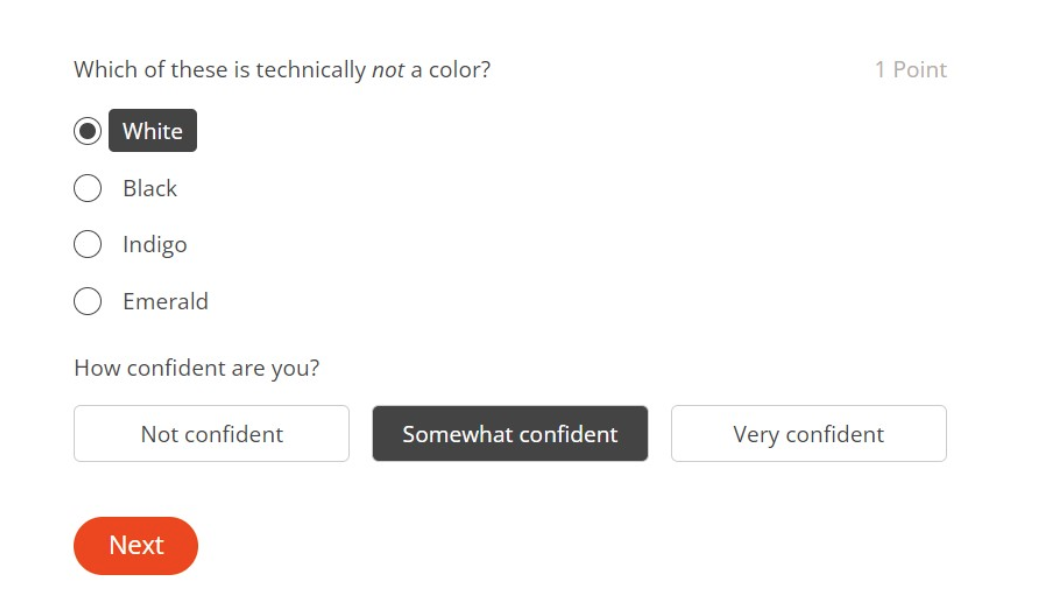
Whoa! What is this sorcery?
Our latest product innovation is Confidence-Based Scoring (sometimes called Certainty Based Scoring). Confidence-Based Scoring takes into account not just the answer to the question, but also the participant’s confidence in their answer. In other words, it’s a game changer: it provides you with the metacognitive insight that standard multiple-choice questions are missing, and it doesn’t require additional time or effort to include or to evaluate.

With Confidence-Based Scoring, you can increase the likelihood of a participant assessing their confidence honestly by weighting their resultant score: Confidence-Based Scoring rewards confident and correct scores while deducting points for incorrect but confident answer choices.

Students show that multiple-choice tests, used with confidence-based questions, provide a more extensive measure of the end user’s knowledge, help to identify topics in which learners are not just incorrect but misinformed, and help the learner retain information.7 Best of all? Learners actually like it!8
Can confidence-based scoring add value to my training and learning programs?
You should use Confidence-Based Scoring if the end user’s mastery of a topic is especially important to you. People tend to be overconfident in their knowledge and with confidence-based scoring you can help to overcome this bias while at the same time ensuring you and the learner are on the same page about what they really do know…and what they need to learn.
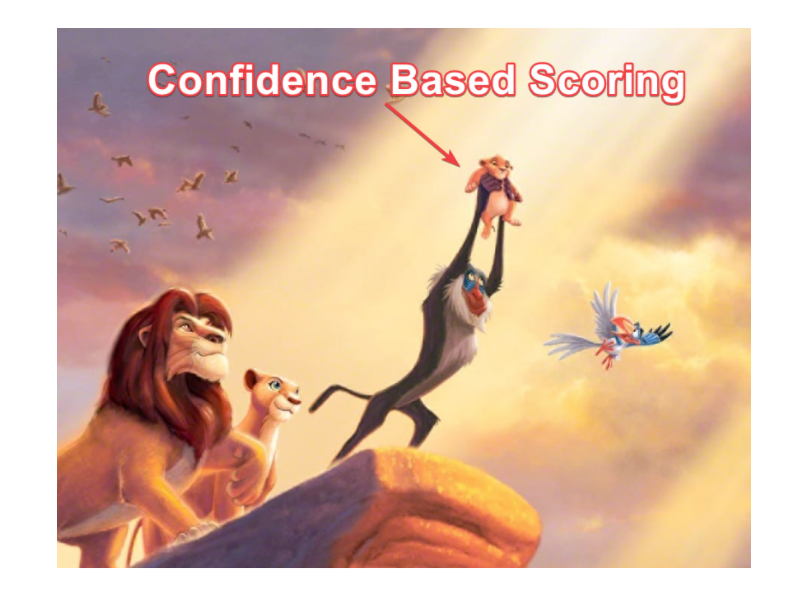
References for Further Reading
- https://www.tandfonline.com/doi/abs/10.3200/CTCH.57.1.3-8
- https://www.washingtonpost.com/news/answer-sheet/wp/2013/01/25/the-real-problem-with-multiple-choice-tests/
- https://events.educause.edu/eli/annual-meeting/2018/agenda/elevate-rigor-foster-academic-integrity-and-apply-udl-techenabled-strategies-to-improve-student-learning
- https://blog.nise.institute/4-effective-alternatives-to-multiple-choice-assessments
- https://tmedwin.net/cbm/
- https://files.eric.ed.gov/fulltext/ED562245.pdf
- https://commons.erau.edu/jaaer/vol26/iss1/3
- https://www.psychologicalscience.org/news/releases/people-are-overly-confident-in-their-own-knowledge-despite-errors.html



